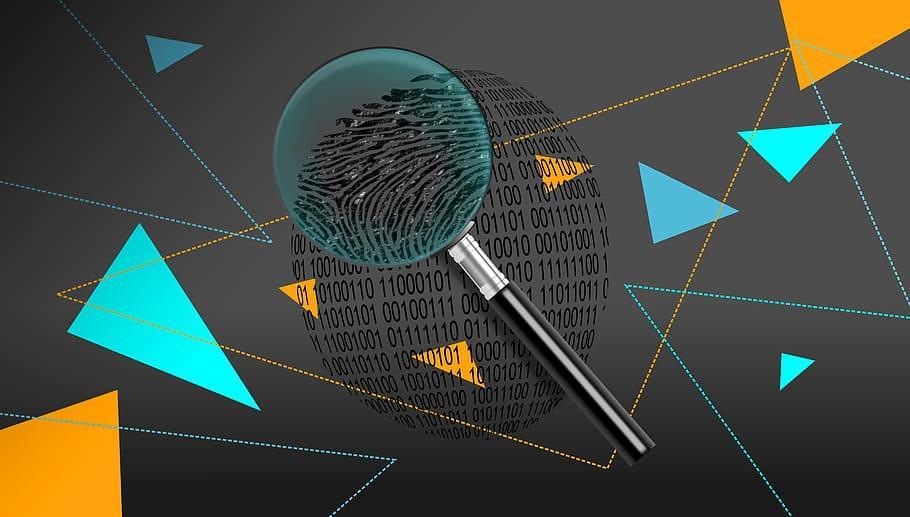Computer forensics specialists have become one of the most popular careers in the information technology field. It is the result of increasing and more sophisticated cybercrime.
After receiving the position in this field, your responsibility may be to perform whatever technical duty is necessary to assist officers dealing with cybercrime.
We will discuss how hard computer forensics is and the skills you need to succeed in this area. Let’s get into the details right now!
Is Computer Forensics Hard?
Yes, computer forensics is hard, and it requires you to have a solid and varied IT background. If you decide to pursue a career in this field, it is essential to keep up with new technology trends.
It is the responsibility of investigators in this field to investigate digital data collected as evidence in criminal cases.
We’re seeing an increase in frequency, complexity, and advances in software and hardware, making it harder to deal with cybercriminals.
Therefore, as a forensics expert in the field, you may find yourself constantly straining to find information quickly to investigate cybercriminals.

What is Computer Forensics?
If you become an investigator in this field, you may have an essential role in:
- Law enforcement agency
- Government organization
- Law firm
- Accounting firm
- Bank
- Software development company
- Private investigation company
- And more
Your primary responsibility is to fight cybercrime by extracting digital proof from digital devices, such as computer systems, hard drives, or storage devices.
Additionally, organizations can hire you to analyze electronic documents in images, emails, and other files to gain potential evidence.
This area is still relatively new, and it has become more prevalent in recent years.
The popularity of this area is because of technological advancement and the increasing involvement of technology criminals.
In addition, the expansion of this area has also led to the birth and development of many specialized areas, such as the investigation of networks, firewalls, databases, mobile devices, mobile applications, and more.
Skills Needed
If you decide to pursue a career in this area, you must equip specific skills. Here are our recommended skills for those interested in this area:
- Technical Aptitude
- An Understanding of Law and Criminal Investigation
- Attention to Detail
- Comprehension of Cybersecurity Fundamentals
- Analytical Skills
- Communication Skills
- A Desire to Learn
- Critical Thinking Skill
- Malware Analysis Skill
5 Quick Steps to Becoming an Expert

The following is a recommended path to beginning your career in this field. This path contains five steps, including:
1. Choose a Suitable Route
It is true to say that becoming an investigator in this area is not straightforward. As a result, you should not expect to land this job overnight.
You need to choose a suitable path to help you reach your career goal. For example, if you like to pursue a career in government, comprehending the specific requirements for this position is essential.
Additionally, non-governmental investigative organizations and government-run privates usually are not too strict about their applicants’ qualifications. Hence, start by deciding if you like to take a job in the government or the private area.
2. Completing the Education Program
According to the BLS, if you want to get entry-level positions in this field, you have to own a bachelor’s degree in some areas such as:
- Computer forensics
- Criminal justice
- Computer science
- One related field
In some instances, owning an associate degree or suitable certifications may also entitle you to an entry-level position.
3. Obtain Certifications
Some jobs in this area may require a certification. Even if the position you seek does not require a certificate, obtaining one is better.
Owning at least one certification will lead employers to respect you, making you stand out from other candidates since it shows your skills and knowledge.
The following are some suggested certifications:
- CCE – Certified Computer Examiner
- CFCE – Certified Forensic Computer Examiner
- EnCE – EnCase Certified Engineer
- GIAC – Global Information Assurance Certification
- ACE – AccessData Certified Examiner
Remember that not all positions require a certificate. But owning at least one will increase your odds of getting a job.
4. Land A Job
Once you have completed the necessary programs to obtain relevant degrees and certifications, it is time to apply for a job.
It is possible to get jobs at government agencies, such as:
These government agencies should detail their hiring positions on their websites. Additionally, you can apply to smaller or local government agencies, and they also deliver a job listing on their website.
If you want to work in the private sector, you can find good options on popular job sites like Glassdoor, LinkedIn, Indeed, etc.
5. Keep Learning
This area is constantly evolving. As a result, even if you have reached a preferred position, it is essential to improve your skills by constantly learning.
We suggest you attend conferences because it is an ideal way to stay up to date with emerging techs. In addition, it is wise to follow cybersecurity publications and computer forensics to receive the latest tech advancements and trends.
Conclusion
This field seems to be a challenge for many people. If you want an ideal job in this field, you must go through a difficult road.
Do not expect success in this field overnight. Even if you get a position in this field, it is essential to keep learning as the field is constantly evolving.
If you have any questions, don’t forget to leave a comment at the bottom of the article. We will try to answer your questions as soon as possible.
Please share this article with people who share the same passion as you.
Thank you for reading!
